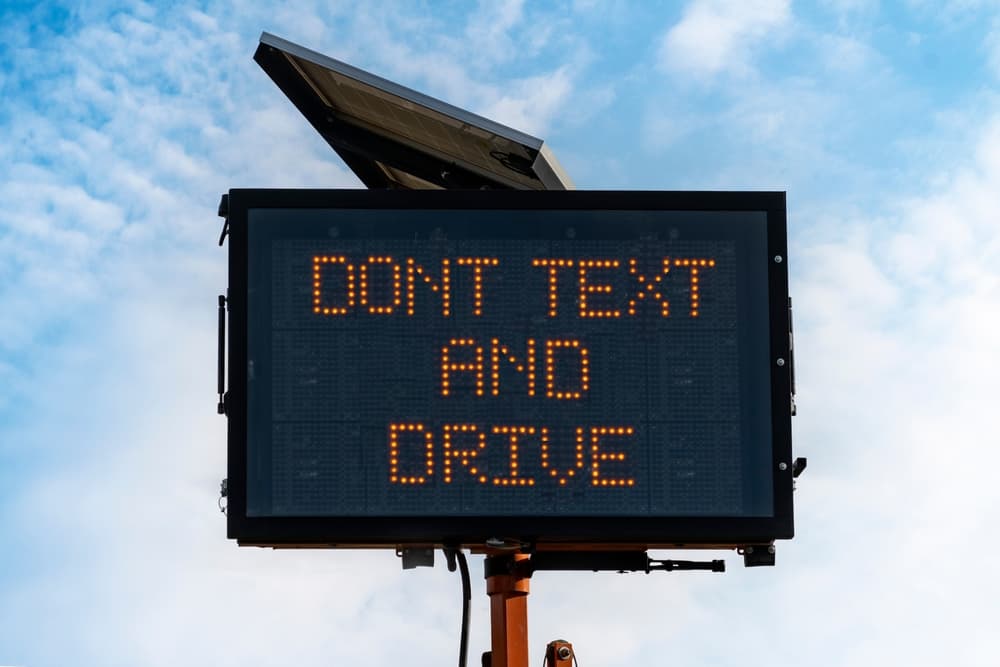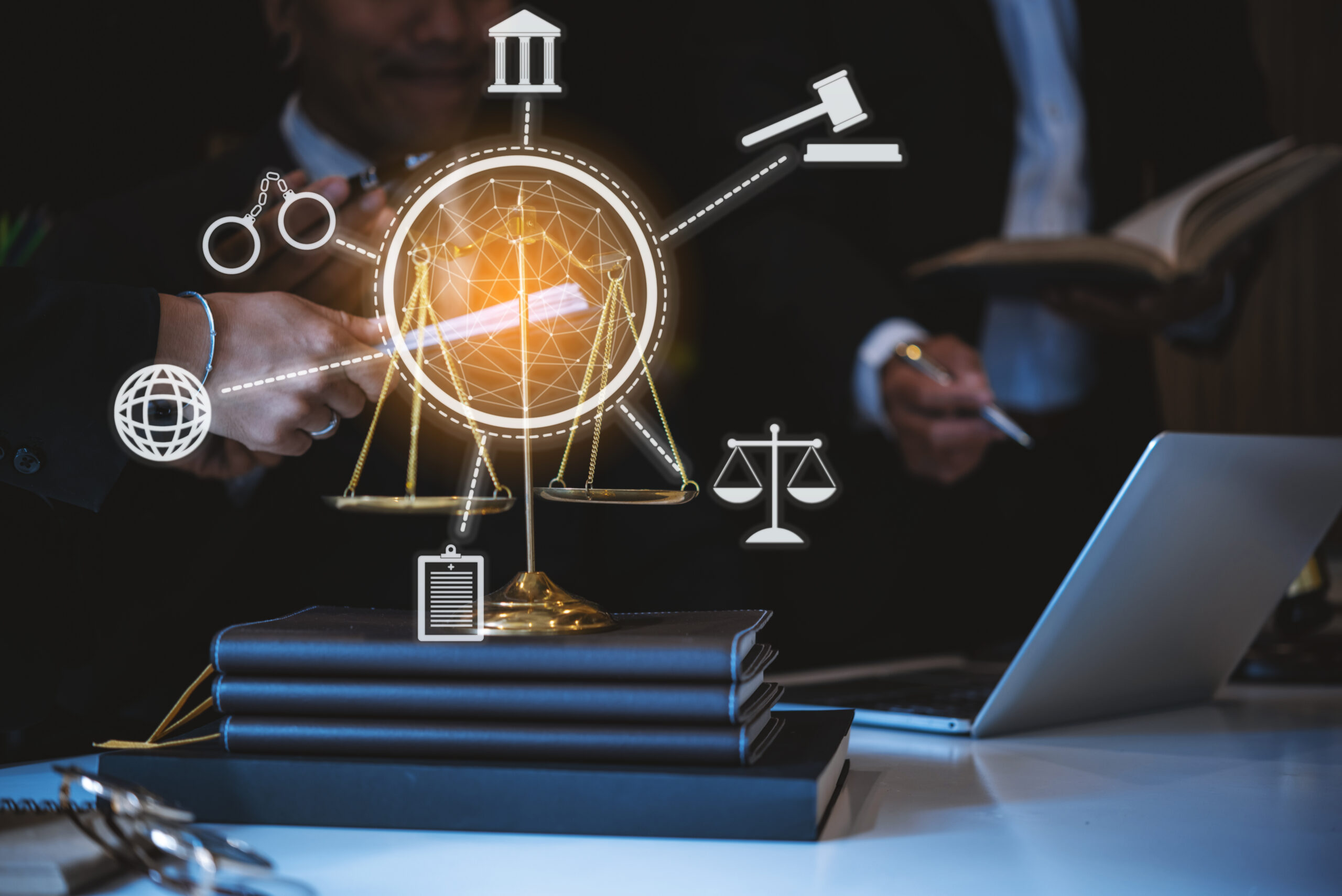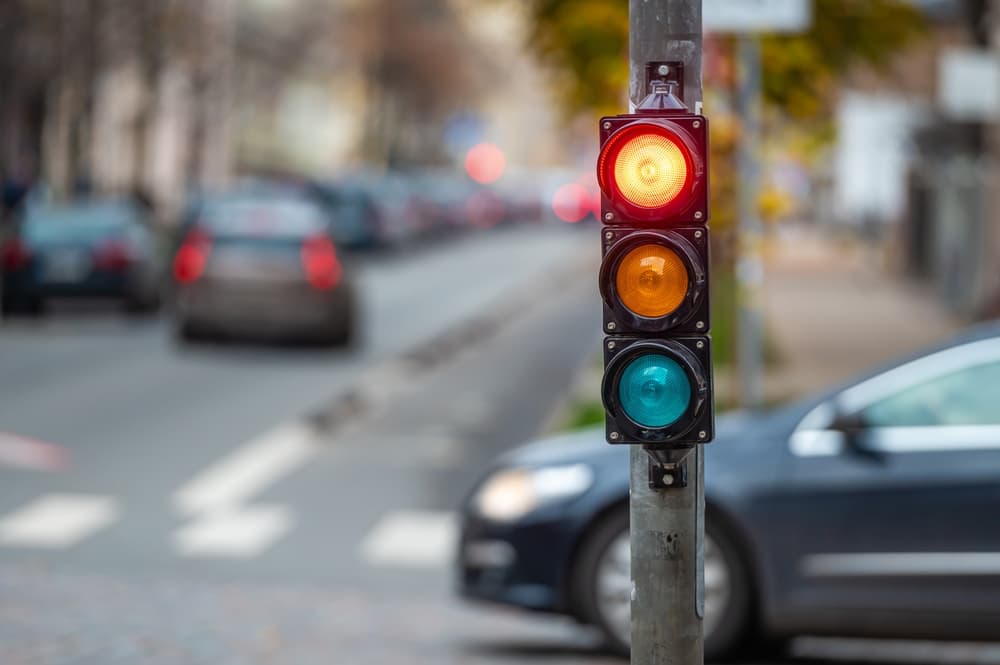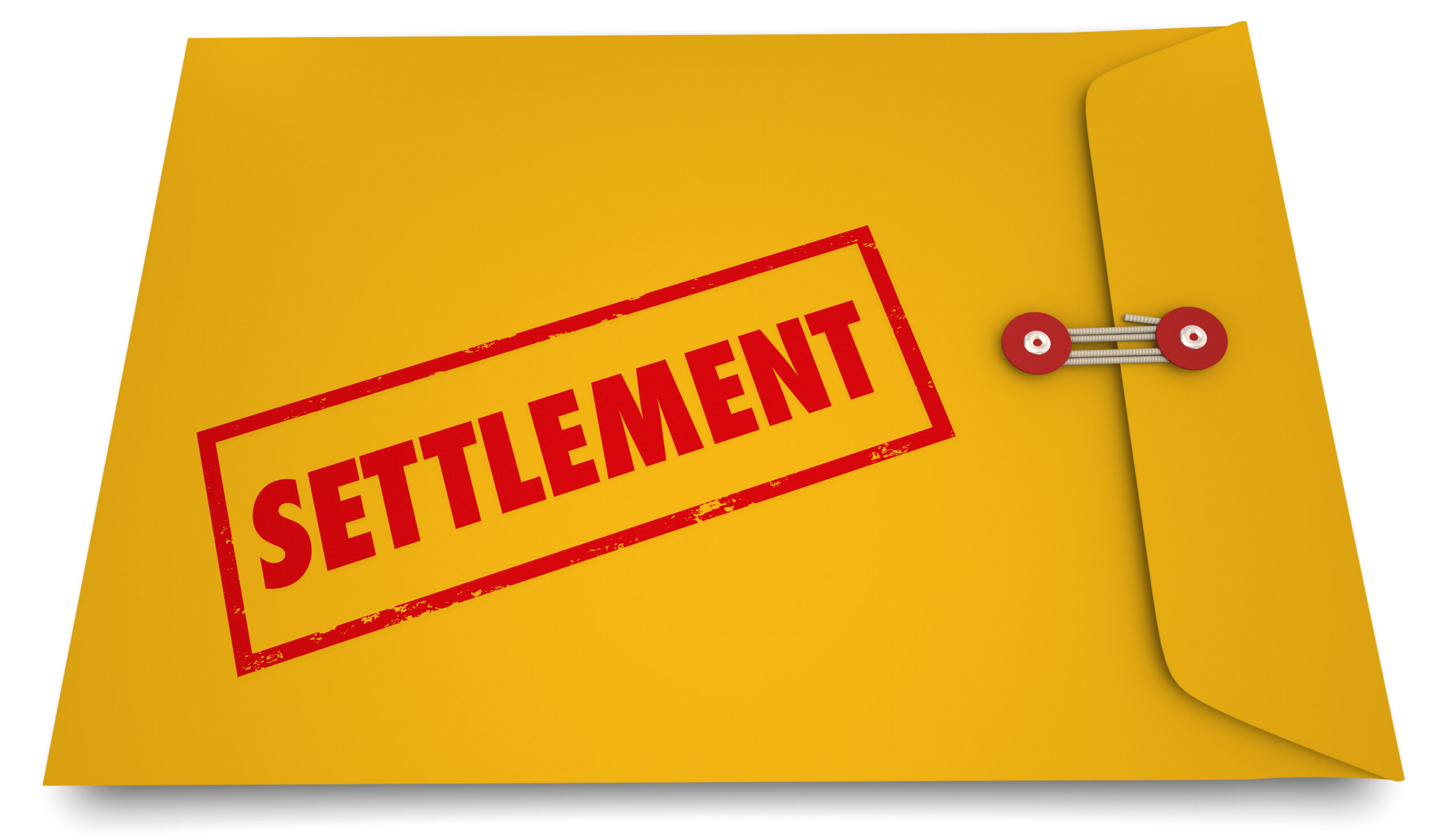Always hire an experienced car accident lawyer after a serious car accident. An attorney can handle all the legal legwork and talk to other parties and their insurance companies for you. This means you can concentrate on getting better while your lawyer works on your case to get the money you deserve.
When Should You Hire a Car Accident Lawyer?

A car accident is often a confusing and stressful time. Knowing when to get a lawyer can make a big difference in the outcome of your case. A car accident lawyer can guide you through the claims process, explain your rights, and work to get you the compensation you deserve.
Here are some scenarios where you need a professional:
- You Suffer Injuries in the Accident: If you sustain injuries in the accident, you should definitely hire a lawyer. A lawyer can help you get compensation for injury-related losses, such as medical bills, lost income, and pain and suffering. They can also deal with insurance companies and the legal aspects of your case while you focus on recovery.
- Disputes Arise Over Who Is at Fault: If it’s unclear who is at fault for the accident or if the other party is disputing fault, a lawyer can help. They can collect evidence to support your case, such as witness statements and traffic camera footage, and work to hold the responsible party accountable.
- Complex Legal Issues Are at Play: Sometimes, accidents involve complex legal issues like illegal turns or driving under the influence. A lawyer understands the laws surrounding these factors and can work within the legal system to protect your interests. They’ll know how to present your case in the most favorable light under the circumstances.
- Your Vehicle Sustains Significant Damage: If your car sustained major damage in the accident, a lawyer can help you get the full amount you need to repair or replace it. They know how to negotiate with insurance companies who often try to pay less than what you are due for your losses.
- The Insurance Company Won’t Pay What It Owes You: If you have any trouble with your insurance company, such as a claim denial or refusal to pay enough, a lawyer can advocate for you. They know insurance laws and can challenge the company’s decisions, fighting for your right to fair compensation.
- Your Injuries Have Long-Term Consequences: You need a lawyer if the accident affects your ability to work or requires long-term medical care. Your attorney can calculate the long-term costs you incur due to the accident and fight for fair compensation that addresses all of your future needs.
Secure legal representation after a car accident, no matter how minor or severe.
Even in seemingly straightforward cases, a skilled attorney can provide peace of mind, allowing you to focus on your recovery while they handle all the legal details. And remember, the sooner you engage a lawyer, the more time they have to prepare your case and maximize your settlement.
Types of Car Accident Cases Attorneys Can Handle
When you suffer harm in a car accident, the type of collision can greatly affect the legal approach to your case.
No matter the crash scenario, a lawyer can identify who is at fault, deal with insurance companies, and demand adequate compensation for your injuries. Each type of accident involves unique considerations, and a skilled lawyer knows how to handle each one.
Here are some common accident cases a car accident lawyer can handle:
- Head-On Collisions: In head-on collisions, two cars crash into each other front-first. These accidents often happen when one driver crosses into the opposing lane and hits an oncoming vehicle. The direct impact at high speeds makes head-on collisions extremely dangerous.
- Rear-End Accidents: This type of accident occurs when one driver hits the car in front of them from behind. Rear-end accidents often happen when rear drivers don’t pay attention or follow too closely and can’t stop in time. Injuries like whiplash are common in these accidents, even when they occur at relatively low speeds.
- Sideswipe Collisions: Sideswipe collisions occur when the sides of two cars moving in the same or opposite directions scrape against each other. This usually happens when one driver changes lanes without noticing a car next to them. These accidents can have severe consequences if either driver loses control and spins out after colliding.
- T-Bone Accidents: A T-bone accident happens when one driver crashes the front of their car into the side of another vehicle, forming a wreck that looks like a capital letter T. These collisions are common at intersections when one driver fails to yield or runs a red light, and can cause severe injuries to the same-side passengers.
- Rollover Accidents: A rollover accident takes place when a car flips over onto its roof or side. This can occur if a driver swerves suddenly or if another vehicle hits the car with sufficient force. Rollovers are particularly dangerous accidents that often result in life-threatening injuries.
- Truck Accidents: In a truck accident, a large commercial truck collides with a smaller vehicle. The size and weight of a truck mean they can cause extensive damage and injuries in crashes. These accident cases are usually more complex due to unique trucking laws and regulations.
- Pedestrian Accidents: Pedestrian accidents involve a vehicle striking someone traveling on foot. These accidents often occur in crosswalks, parking lots, and other areas where vehicle and foot traffic meet. Without any safety gear, pedestrians can sustain devastating injuries in collisions.
- Bicycle Accidents: These accidents occur when a driver hits someone on a bicycle with their vehicle. Cyclists have minimal protection and inattentive drivers may not see them.
- Motorcycle Accidents: Motorcycle accidents happen when a vehicle driver collides with a motorcycle rider. Motorcyclists face high risk in these crashes because they lack the protective enclosures that surround occupants in standard vehicles.
- Construction Zone Accidents: Construction zone accidents occur in areas where road work is underway. Even when signs and cones are present, these accidents can happen if drivers become distracted or ignore traffic rules.
Common Causes of Car Accidents

Car accidents can happen for many reasons, sometimes when drivers least expect it. Various factors can contribute to these incidents, ranging from human error to environmental conditions.
Here are some common examples:
- Speeding
- Distracted driving
- Drunk driving
- Reckless driving
- Running red lights
- Running stop signs
- Night driving
- Defective car parts
- Poor road maintenance
- Tailgating
- Road rage
- Driving under the influence of drugs
- Improper lane changes
- Wrong-way driving
- Driver fatigue
- Failure to signal turns
- Driver inexperience
- Potholes
- Tire blowouts
- Construction zone hazards
- Malfunctioning traffic lights
- Failure to adjust to road conditions
Types of Injuries from Car Accidents
Car accidents can cause a range of injuries, some of which are not immediately apparent after the wreck. These injuries can vary greatly depending on the circumstances of the collision, such as the speed of each vehicle, the location of the impact, and whether the occupants wore seatbelts.
A knowledgeable injury lawyer can help you if you sustain any of these common types of car accident injuries:
- Whiplash: Whiplash occurs when the force of a collision causes the head to snap back and forth violently. This type of injury can cause pain, stiffness, and headaches in the neck, upper back, and arms. Symptoms often do not appear right away but can lead to long-term discomfort.
- Broken Bones: In some cases, the impact of a car accident is forceful enough to result in broken bones. Bones in the arms, legs, ribs, and hips are particularly vulnerable. These injuries can range from simple fractures that heal when treated with a cast to more complex breaks that require surgery.
- Concussions: A concussion is a type of brain injury that results from a blow to the head or a sudden jolt that damages the brain. Symptoms often include headaches, confusion, dizziness, and memory problems. Even relatively mild concussions can have lasting cognitive effects.
- Lacerations and Cuts: Shattered glass or metal can cause cuts or lacerations during a car crash. These injuries can vary from minor scrapes to severe wounds that result in extensive scarring. In some cases, deep cuts can even damage nerves or muscle tissue.
- Internal Injuries: Internal injuries involve organs like the lungs, liver, or kidneys, and they’re usually quite serious. They can result from the force of the collision or objects that pierce vehicle occupants during the crash. These injuries are life-threatening conditions that require immediate attention.
- Spinal Cord Injuries: Injuries to the spinal cord can occur when the impact of a crash causes damage to the neck or back. These injuries can lead to partial or complete paralysis below the injury site. The extent of the injury often depends on the section of the spinal cord that sustains damage.
- Burns: If a car catches fire after a collision or if the skin comes into contact with hot surfaces or chemicals, burns can occur. In the most severe cases, burns can penetrate the skin and damage underlying tissues. Burns are often painful and sometimes require extensive treatment, such as skin grafts.
- Emotional Injuries: Not all injuries are physical. Car accidents can lead to emotional or psychological trauma, such as post-traumatic stress disorder (PTSD). Symptoms of this common condition include anxiety, nightmares, and a persistent fear of driving.
How a Car Accident Attorney Can Help You
A lawyer is your strongest ally after a car accident. They use their knowledge and experience to handle every aspect of the legal process, allowing you to focus on moving forward.
Here are just a few ways a lawyer could help you with your car accident injury case:
- Investigating the accident to identify liable parties
- Gathering evidence such as police reports and witness statements
- Consulting medical professionals to assess the full extent of your injuries
- Coordinating with accident reconstruction specialists and other experts
- Exploring all possible sources of compensation to maximize your settlement
- Evaluating how the accident affects your ability to work
- Calculating a fair settlement in light of your injuries and losses
- Organizing your medical records and bills related to the accident
- Advising you on the legal process and what to expect
- Communicating with the other driver’s lawyers or insurance company
- Preparing and filing all claim documents in a timely manner
- Negotiating with insurance companies on your behalf
- Challenging any denials or low-ball offers from insurance companies
- Arranging expert testimony to support your case
- Protecting you from unfair blame or accusations
- Filing a lawsuit against the at-fault driver if necessary
- Representing you in court to fight for your rights
The Risks of Going Without a Car Accident Lawyer
Going without a lawyer after a car accident could put you at a significant disadvantage when filing a claim for compensation. Without legal advice, you might not know the full value of your claim and could end up accepting a settlement that’s far too low.
A lawyer knows how to negotiate with insurance companies who typically aim to pay as little as possible. Without this know-how on your side, you might struggle to get the funds necessary to cover all your medical bills and car repairs. You might not be aware of all the deadlines and legal requirements necessary to build a strong case, which could lead to costly mistakes.
Insurance adjusters will likely pressure you to admit fault or agree to a quick settlement that’s not in your best interest. A lawyer acts as your shield against such tactics, protecting your rights and championing your interests throughout the process. Without one, you risk losing out on the fair compensation you are due.
How Much Does It Cost to Hire a Lawyer?

Hiring a skilled personal injury lawyer after a car accident is often more affordable than you might think. This is because most injury lawyers charge no upfront fees to take on your case. Instead, they work on a contingency fee basis, meaning they only receive a payment if they win your case or reach a settlement.
Even better, you usually pay nothing out-of-pocket in a contingency fee arrangement. Your lawyer simply calculates their fee as a portion of any compensation they win for you, and the money comes out of your settlement at the end. And since the lawyer’s payment depends on the outcome of your case, they have plenty of motivation to achieve the best possible results for you.


